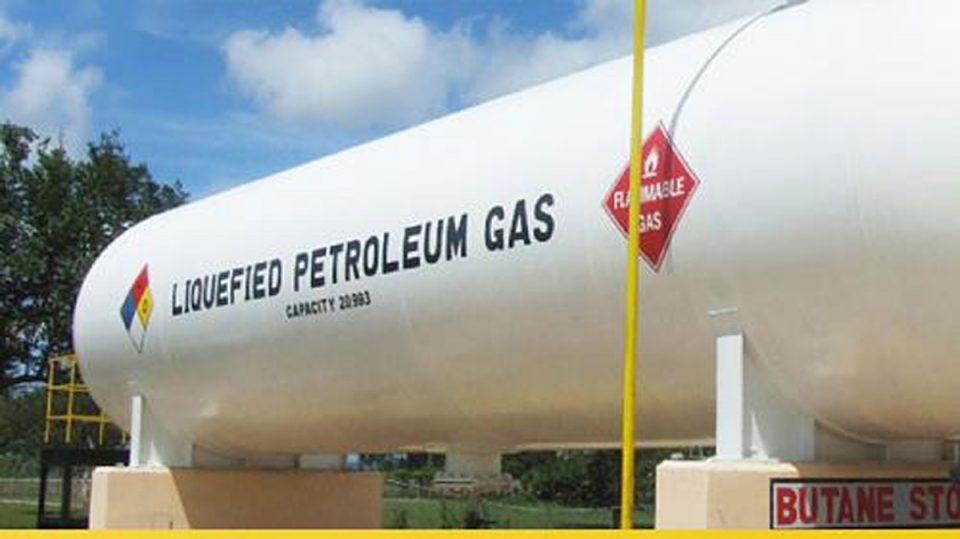With the uncertainties surrounding oil demand and growing need for energy powered by gas locally and internationally, the Nigeria LNG Limited (NLNG), and other stakeholders have urged the Federal Government to declare a decade of gas beyond the 2020 theme for optimal exploitation and utilisation.
According to the stakeholders, global developments have presented an opportunity for the government to re-appraise its gas agenda, with a view to increasing its reserves and domestic utilisation, especially for power generation and transportation.
Given the scepticism around oil rebound, they advised that regulations and strategic frameworks be developed to encourage players in the sector.
Speaking at the Nigeria-British Chamber of Commerce webinar themed, “Oil & Gas Downstream and Midstream Sectors – Way Forward,” the Managing Director, NLNG, Tony Attah, said the firm would increase its allocation of Liquefied Petroleum Gas (LPG) to the domestic market from 350,000 metric tonnes (MT) to 450,000MT by 2021.
He said the move is aimed at supporting the Federal Government’s plan to deepen LPG (cooking gas) penetration in Nigeria.He said: “We have helped to reduce flaring by over 65 per cent, and moved Nigeria from the second position to the seventh, having created the avenue to monetise gas.
“This has also helped us to bring major earnings to the economy. We can become the fourth largest reserve of gas if we exploit and develop the over 600 trillion cubic feet (tcf) of gas yet to be explored.
“Nigeria is a gas nation but keeps focusing on oil. More than just agreeing to make 2020 the year of gas, we need to declare the decade for gas.
“With the transition in the global economy and challenge of peak oil, we will have no choice but to shift focus to gas,” he added.
He described the proclamation of 2020 as Nigeria’s year of gas as fleeting; arguing that the nation required a sustained gas programme to enable players lay out plans for meeting the estimated local LPG demand of 3.0 million tons per annum.
Decrying the paradox of Nigeria’s status of a gas nation, and the urgency of addressing local LPG supply deficits in the country, Attah noted that some 100,000 Nigerian women and girls in the rural areas form part of the one million fatal casualties of kitchen fumes annually.
“Kitchen fumes kill more Nigerians than COVID-19,” he stated, adding that NLNG has been at the forefront of addressing local supply challenges from multiple fronts that include volumes of molecules, logistics and supply chain debottlenecking.
Part of the measures deployed by the company, he explained, is the empowerment of local players in the supply chain logistics, which, according to him, has broken the round trips for supply of LPG to communities contiguous to the production plants in Rivers State.
President, NBCC, Kayode Falowo, said the Chamber believes the overwhelming sentiments within the oil and gas sector is at best taken with cautious optimism following the disruptions that have occurred as a result of COVID-19.
“Variables have been in the negative with experts suggesting that recovery will take a while, but we hope that with the vaccine, activities can return to normal. The effect of the COVID-19 has lowered expectations and earnings from the oil and gas sector.
“Nigeria being an oil-dependent economy and recent comments by the Federal Government has shown that revenue shortfall for the 2020 budget is as high as 40 per cent. There are still opportunities in the sector but we must note that Nigeria requires globally available locked up funds to aid GDP growth,” he added.
He noted that the rising global demand for cleaner energy sources like LNG and the likes, offered Nigeria an opportunity to exploit gas resources further, adding that investible cash would only go to countries with liberal policies.
“With right policies in place, we will be able to attract required investment. Government needs to work on its ease of doing business, while regulations should work in global trends. Collaboration with stakeholders is equally imperative. Government should take the approach of an enabler rather than as a regulator,” he added.
For success in a post-deregulation era, the Chairman of Major Oil Marketers Association of Nigeria (MOMAN), Tunji Oyebanji, argued for a fair and transparent market, sound legislation, consumer protection, self-regulation and corporate governance to mention a few.
He noted that the downstream remains challenged by the absence of private sector investment, poor state of industry and support infrastructure, lack of clarity/transparency in polices and regulations, and trust deficit by the Nigerian public and consumers.
He also called for removal of state monopoly operated by the Nigerian National Petroleum Corporation (NNPC), and her downstream companies in the supply of products to the domestic market.
He argued that the prevailing practice where marketers rely on the ex-coastal and ex-depot prices determined by the NNPC inhibits competition since all players are rewarded equally despite the scale of internal efficiencies.




